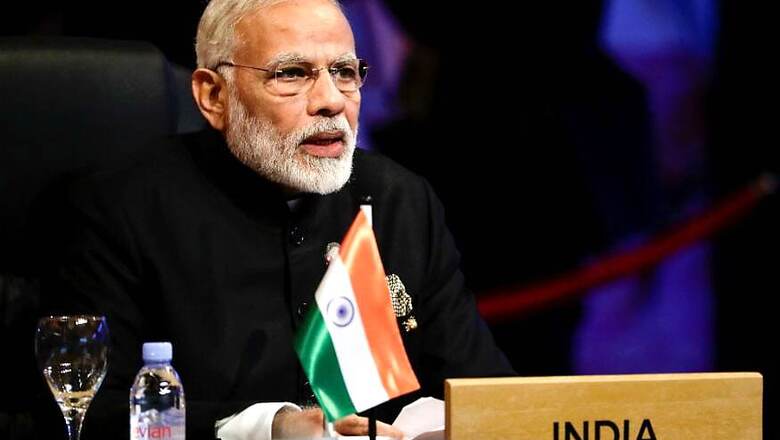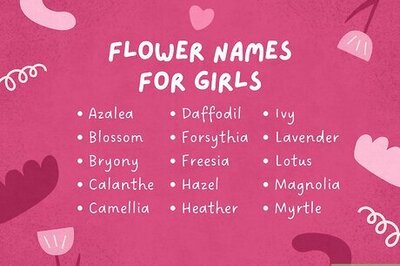
views
New Delhi: India is all set to host the ASEAN-India Commemorative Summit in the national capital on 25th and 26th January wherein leaders of 9 countries will also be part of the Republic Day celebrations on January, 26. News18 looks at the leaders of the 10 nations who’ll be hosted by Prime Minister Narendra Modi and his administration.
Ngyuyen Xuan Phuc, Prime Minister, Vietnam
Phuc is the head of the Vietnamese government, under whom the nation has become a key defence partner of India after Singapore. Two years ago, Modi visited Vietnam before heading to China and the two leaders also met at the East Asia Summit. Phuc has encouraged Modi to push for Vietnam’s military expansion, considering China’s rising claims on the South China Sea. The current visit is expected to further deepen military ties between the two countries.
JokoWidodo, President, Indonesia
Known as Jokowi, the President is visiting India for the second time. He is considered as people’s leader back in his country and was the mayor of Jakarta before he became President. Coming from a military background, Jokowi expects to strengthen Indonesia’s position in the Indian Ocean.
Lee Hsien Loong, Prime Minister, Singapore
Loong comes from an illustrious background-his father was Lee Kuan Yew, the first PM of Singapore and considered a visionary. Loong is also considered to be treading on his father’s footsteps as he lies focus on technology and innovation. Modi, for one, has been deeply inspired and fascinated by Singapore’s development and has taken the same into account while developing smart cities and skill management projects.
Najib Razak, Prime Minister, Malaysia
Razak’s visit is important as he is struggling to gather political strength in his own country because of him being embroiled in a murky billion dollar scandal. Malaysia goes to polls later this year and the opposition has already pitched its candidate. The son of former PM Abdul Razak Hussein, Razak has now turned to China for help, making his current visit to India for ASEAN Summit all the more interesting. Razak has slammed critics who called him out for ‘selling Malaysia’s sovereignty to Beijing’, by saying that relations between the two nations remain a two-way street.
Hun Sen, Prime Minister, Cambodia
Sen is the world’s longest-serving head of a government, ruling the Asian nation since 1985. His visit to India comes just days after he reportedly told journalists on how to report and that they must write in a ‘cool way’ to stay out of trouble. Cambodia has seen political change as well with the opposition Cambodia National Rescue Party being dissolved by the Supreme Court, meaning now that the main opposition party will not be contesting this coming election in July. Rumors of Sen staying in power have already started doing the rounds. Sen has also been a fan of US President Donald Trump and has been appreciative of his attempts at curbing ‘fake news’.
Aung San Suu Kyi, State Counsellor, Malaysia
While her position might be of state counsellor, she is the de facto premier of the country. Her image, in the backdrop of her being a recipient of the Nobel Peace Prize, has off late taken a beating with the Rohingya crisis. Her silence and alleged ignorance to people’s plight was slammed by leaders worldwide. Her visit to India attempts to put Malaysia on a stronger pedestal among other Asian giants amid the crisis that the country is dealing with.
Thongiun Sisoulith, Prime Minister, Laos
He assumed the role of the PM in 2016, prior to which he was the deputy PM and also the foreign minister. Laos has received a huge aid from China, to the tune of 5.2 billion yuan, which Sisoulith has asked to be spent efficiently. Further, the leader has also looked to China to resolve disputes in the South China Sea, a move which will have some impact on how Laos-India talks shape up at the ASEAN summit.
Rodrigo Duterte, President, Philippines
Probably the ‘brutal’ leader among those visiting, Duterte, or Rody as he is known, has been in the limelight for the killings of drug peddlers and victims too. While his way of governance may have got the world into a tizzy, he is said to still maintain his ratings in his country. Under Rody, Philippines took China to the Permanent Court of Arbitration over the South China Sea and won.
Prayut Chan Ocha, Prime Minister Thailand
Ocha was the leader of the military coup in 2014, after which he came to power. Ocha’s governance has however come under fire as he has not kept his promise of holding nationwide polls. Ocha, earlier this year, walked out of a press conference and instead brought out a life-size cardboard cutout of himself and asked the journalists to quiz him instead.
Hassanlal Bolkiah, Sultan of Brunei
He was once the richest man in the world, most of which comes from his country’s rich oil and gas reserves. India has major business interests in Brunei, the smallest country in Southeast Asia, with many Indian textile firms having a considerable stake there. Indonesia is currently investigating Bolkiah’s complaint about an Instagram account that criticized him.



















Comments
0 comment